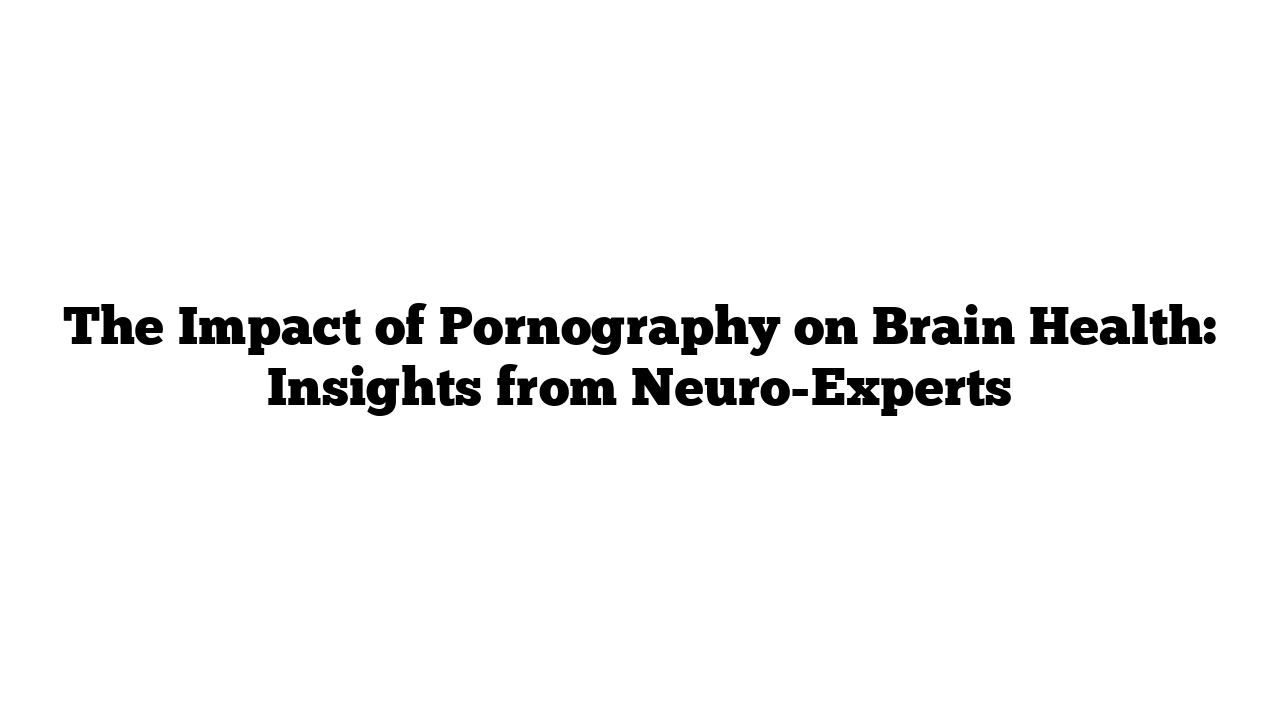In today’s digital world, the prevalence of pornography is alarming. As many people consume this content, researchers are investigating its long-term effects on brain structure and function. Studies indicate that pornography can significantly alter how our brains operate. Let’s explore what experts have found.
What Is Pornography?
Pornography is not a natural part of human sexuality. Our brains are designed for love, connection, and intimacy, not for consuming explicit material. When individuals engage with pornography, they often develop unrealistic expectations about sex and relationships.
For instance, a young man who primarily views sexual acts through a screen may struggle to find satisfaction in real-life interactions. This reliance on digital representations can rewire the brain, leading to distorted views of sexuality. As neuro-experts point out, people become sexually imprinted by what they see online, creating a disconnect from genuine human experiences.
How Pornography Affects the Brain
Recent studies using brain imaging technology have shown that long-term pornography use can shrink the gray matter in the brain’s reward center. This region is crucial for pleasure and motivation. When individuals consume pornography frequently, their prefrontal cortex—responsible for decision-making and impulse control—becomes less effective in regulating the reward system.
As a result, the connection between these brain areas weakens, making it more challenging to control impulses related to sexual behavior.
Effects on Behavior
The content of pornography matters significantly. Research indicates that the portrayal of women in increasingly violent and degrading ways can affect how individuals treat others. Violent pornographic material can normalize aggressive behavior and contribute to a desensitization towards sexual violence.
Individuals who regularly consume such content may become less likely to recognize inappropriate behaviors, leading to acceptance of sexual assault and harassment as acceptable. This shift in perception can have dire consequences for society.
The Cycle of Tolerance and Addiction
When people engage with pornography, they may find themselves in a negative feedback loop. As tolerance builds, individuals may exhaust one genre of porn and feel compelled to seek out more extreme or deviant material. This cycle can lead to further rewiring of their sexual scripts, reinforcing unhealthy behaviors.
Recovery from Porn Addiction
Recovery from porn addiction is challenging but possible. Just as the process of becoming addicted takes time and effort, so does recovery. It involves remapping and rewiring the brain to return to a more balanced and natural state.
Individuals in recovery may need to relearn how to love and connect with others meaningfully. This process can take time, but with dedication, it is entirely achievable.
Takeaway: A Path Forward
If you or someone you know is struggling with pornography addiction, it’s essential to seek help. Professional guidance can provide support and strategies to navigate this journey. Remember, recovery is a process, and it’s crucial to be patient and compassionate with yourself.
For more information on mental health resources, visit medicaltimes.io.
References:
- Huberman, A. (2021). The effects of pornography on the brain. Journal of Neuroscience.
- University of Texas Department of Neurosurgery. Research on the impact of pornography use.
- Hall, P. (2020). Understanding the addiction cycle: Implications for recovery. Journal of Addiction Research.
By understanding the effects of pornography on the brain, we can make informed decisions and foster healthier relationships. Remember, you’re not alone in this journey, and help is available.
